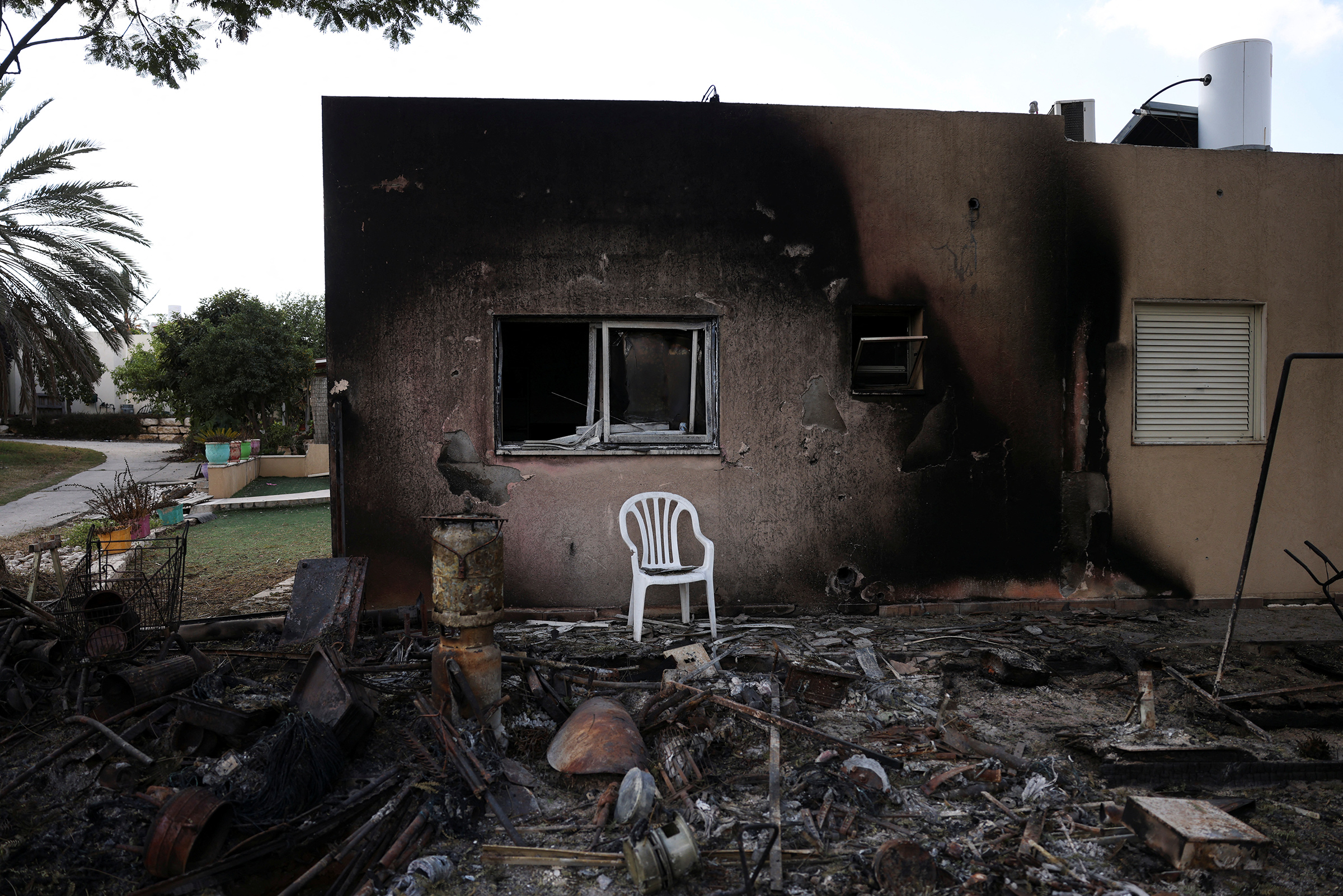
I am a volunteer medic with United Hatzalah, a community-based emergency medical services organization that operates throughout Israel.
We are ordinary citizens who have received full training and have become certified first responders to administer lifesaving treatment. We are taught that when an emergency occurs, every second matters. We were created to drop whatever we are doing in our own lives and respond to emergencies.
[time-brightcove not-tgx=”true”]We are trained for a Code Orange, a mass casualty event. But no amount of training and experience could have prepared us for the harrowing scenes we witnessed as we responded to calls on October 7 in Southern Israel.
On the morning of October 7, I woke up to rocket sirens that were sounding throughout our country, including my town of Beit Shemesh. All medics with United Hatzalah received a mass message on our phones that there was an immediate need for help in Southern Israel—that it was unclear exactly what the need was, but there was a critical emergency.
Within 10 minutes, I was out the door, hugging my children and husband goodbye, and getting picked up by an ambulance driver and fellow volunteer who lives near me. Within 30 minutes, we were on route 232, which runs along the Gaza strip. It was a road of death.
As we drove on the road, we approached a minivan. We stopped to inspect and see if there was anyone inside. There was, but every member of the family had been killed. In the front seat, a dead male—maybe a father, a husband, or a brother—had been shot in his head and his back, multiple times. In the back seat, I saw what I could only assume was a mother, bleeding and fallen over a carseat. Beneath that carseat, a baby shot dead in the head. The mother appeared to have died lying over her baby to protect him.
We had to keep going. We had to tear ourselves away from this heartbreaking scene to save the living.
Read More: Telling the Stories of Israel’s Hostage Nightmare
We drove on and approached the entrance to a kibbutz. What we would soon learn was the entrance to the gates of hell. Kfar Aza kibbutz.
What I saw was unspeakable, but the world must know what happened, and what should have never happened, in our lifetime.
Along the road, we began to see dead bodies. Inside more cars, entire families were murdered. And on the streets, we bore witness to the bodies of babies, children, women, and men covered in blood, limbs missing or faces distorted. We drove for 15 kilometers, or almost 10 miles, until it became impossible to drive on without running over dead bodies. I saw a hundred dead people before I saw a single, living, wounded person. I saw with my own eyes how Hamas terrorists had brutally attacked and burnt babies.
This was a void of humanity. And filling that void was violation, torture, the taking of innocent life, and the wiping out of entire families.
The sights continue to haunt me. I spent a straight week responding and treating wounded people nonstop. When I finally returned home, I went to the supermarket to buy groceries for my family, and I saw a woman with a stroller and her baby, also buying groceries.
Without thinking, I ran towards her and yelled at her to get out. Something was telling me that she was in danger. And then, I realized that this mother looked a little like the murdered mother I had found, crouched over her baby in the minivan.
At home, I keep a special radio close to me to monitor calls for help nearby, along with my pack that contains emergency equipment to treat the wounded.
My own children, two and six years old, know that as soon as we hear a siren, we run to our shelter. We have put books, toys, and candy in our shelter in an effort to create a sense of normalcy for our children—perhaps futile when the booms around us seem to scream that this is everything but normal.
Every time I leave our home, I experience fear about whether I will return. But I know I am also leaving to protect my family because my way of sheltering our community is treating and taking care of others.
One of the most well-known Jewish teachings is that to save a life is to save the entire world. But what happens when it seems our entire world has come crashing down? All I know is that I will be there to do my job, to respond to the call, and to treat whomever in our country is in need.
from TIME https://ift.tt/d0SY46P



0 Comments